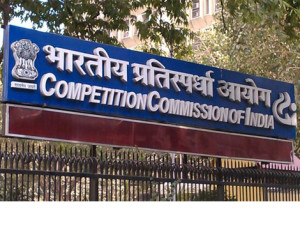The Competition Commission of India vide its recent order dated 31.10.2017, while imposing penalty on the All Kerala Chemists & Druggists Association and two of its district units in Thrissur and Kasargod and their office bearers for continuing with the forbidden practice of obtaining NOC by the Pharma companies before appointing new stockists, has for the first time, issued a general direction and advisory to the pharma companies to come forward and report any such demand from the Associations to the Commission.
The Competition Commission of India CCI’ vide its order dated 31.10.2017) has issued a stern advisory to all pharmaceutical companies to co-operate with CCI in eradicating the practice of obtaining “No Objection Notice” (NOC) by the chemists and druggists trade associations, while imposing monetary penalties on the All Kerala Chemists & Druggists Association and two of its district units in Thrissur and Kasargod and their office bearers.
The Order assumes significance because although the officials of the pharmaceutical companies were made to depose as “third parties” during the investigation to verify the allegations of delay in supplies /refusal to supply /boycott of certain stockists due to non-receipt of the NOC from the District/ State chemists & druggists associations in Kerala boycott etc. (which were found true on records) , yet , CCI desisted from taking any suo- motu cognizance against the Pharma companies for their tacit consent to the impugned practice of obtaining NOC. The facts of the case are as under:
Four stockists (wholesalers) in the State of Kerala ( Information Providers-IPs) , in their individual complaints alleged that All Kerala Chemists and Druggists Association (AKCDA/OP) and two of its district level associations in Thrissur and Kasargod were mandating the requirement of a No Objection Certificate (NOC) prior to the appointment of any stockists, in contravention of the provisions of Section 3 of the Competition Act, 2002 (the ‘Act’), despite cease and desist orders of the CCI in earlier cases involving similar issues. It was alleged that the aforesaid practice of NOC simply changed from written approvals to verbal threats and was also being given in the form of congratulatory/appreciation letters to avoid any sanctions under the Act. CCI directed investigation of the complaints by the Director General (DG).
During investigation, to substantiate the facts and evidence on record, the DG confronted the evidence collected from the IPs and the wholesale distributors with various pharmaceutical companies who allegedly denied supplies to such wholesale distributors (including the Informants) for want of NOC under the threat of AKCDA. Statements of the concerned regional sales managers of Cipla Ltd., Wallace Pharmaceuticals Pvt. Ltd., Alkem Laboratories and Cadila Healthcare Ltd. were recorded and the relevant documents including e-mails were examined. On the basis of the aforesaid facts and evidence the DG concluded that AKCDA has been involved in the practice of grant of NOC by various means such as issue of a congratulatory letter or by way of verbal approval prior to the appointment of stockists by pharmaceutical companies. The DG further observed that NOC has been issued, at times, against payment of cash to the select office bearers of AKCDA. Instances were also found where AKCDA had issued list of stockists to whom distributorship of another division of a pharmaceutical company can be given. Evidences of similar “congratulatory/welcome letter/appreciation” issued by AKCDA in place of formal NOC were found in cases of stockists appointed by Intas Pharmaceuticals, Novartis India, Wallace Pharma, USV Pvt. Ltd, Unilex Lifesciences Pvt. Ltd. and German Remedies whereas evidence of actual NOC in Cadila Healthcare and verbal approval in case of Alkem Laboratories. In the case of Icon Life Sciences, it was found that the appointment of stockist was refused due to non-issuance of NOC by AKCDA.
Based on the aforesaid evidence, the investigation concluded that AKCDA and two of its district units (Thrissur and Kasargod) have contravened the provisions of Section 3(3)(b) read with Section 3(1) of the Act. The DG also identified certain office bearers of these associations to be liable under Section 48 of the Act.
The above facts and evidences were disputed by the AKCDA on grounds of the allegations having been made by a disgruntled former office bearer of the AKCDA, incomplete and distorted facts gathered by the DG during investigation and that the facts in the present case being similar to the previously decided case of P.K Krishnan and therefore this amounts to second prosecution for the same offence. It was also submitted by the OPs that NOC practice is a pro-competitive measure in as much as it was designed by the pharma associations across the country to check entry of spurious/sub-standard medicines into the market and to certify the credibility and genuineness of the stockists to the manufacturers. In this regard, the recommendations of Mashelkar Committee report were also relied upon by the OPs. It was further contended that nonetheless, obtaining an NOC, or any sort of permission from AKCDA,or congratulatory letters etc. were not mandatory and/or a condition precedent for appointment of stockists by any manufacturer in the State of Kerala.
The CCI after considering the replies filed by the OPs held that (i) the past trial and imposition of penalty will not come to their rescue, if the OPs have continued with the anti competitive practices particularly, when the period of contravention was different and was continuing (ii) OPs’ objection regarding DG’s reliance on the depositions made by the disgruntled office bearers of AKCDA was found to be without merit as those erstwhile office bearers were important witnesses. They were part of AKCDA and had first-hand information regarding the working of AKCDA and things happening within AKCDA. (iii) As regards the recommendations of the Meshlaker committee report, CCI found that recommendations of the Mashelkar Committee report are mainly aimed at combating the distribution of spurious, counterfeit and questionable quality drugs. These recommendations do not, in any manner, appear to suggest that the associations can undertake the task of mandating NOC prior to the appointment of stockists.
The CCI further found that from the statements and documents placed on record proves beyond any doubt that NOC practice was in existence in the State of Kerala and was a mandatory requirement prior to appointment of stockists and rejected the contention of the OPs that it was not so. It further noted that the evidence on record shows that the purpose of the NOC was to make illegitimate gains by demanding money by the office bearers of AKCDA and its District units, using their positions, at the disadvantage of Consumers and that such practice also creates barriers to free and fair trade in the distribution of pharmaceutical products/medicines. CCI also examined the role of each individual office bearer of AKCDA and found them to be responsible in terms of section 48 of the Act.
Based on the evidence collected by the DG during investigation in this case, the Commission concluded that AKCDA and its District Association at Thrissur and Kasargod have been indulging in the practice of NOC prior to the appointment of stockists by pharmaceutical companies, which was limiting and controlling the supply of drugs in the State of Kerala, in violation of the provisions of Section 3(1) read with 3(3)(b) of the Act.
CCI accordingly has imposed a penalty of Rs. Rs. 4, 78,545/-, calculated at the rate of 10 % of the average income of AKCDA, under the provisions of Section 27 of the Act. Penalties of Rs. 59,434/- and Rs. 53,889/-, calculated at the rate of 10% of their average income, were also imposed upon Thrissur and Kasargod District Association of AKCDA, respectively. In addition, monetary penalties were imposed on the office bearers of AKCDA and its District Association at Thrissur and Kasargod, at the rate of 10% of their respective incomes under Section 48 of the Act, for their involvement in the anti-competitive practice.
In addition, CCI has also issued a stern advisory to the pharmaceutical companies’ advisory for pharma companies. It will be pertinent to reproduce the advisory issued in the words of CCI for benefit of each pharmaceutical company, as under:
…..investigation in the present matter also revealed the role of some of the pharmaceutical companies, who though were not actively involved in the NOC practice, but were passively cooperating with the erring chemists and druggists associations. The investigation report was sent to them for their comments. Before the Commission, most of them contended, rightly so technically, that since the DG has not found any contravention against them, they have no submissions to make to the investigation report as such. Some of them, as pointed earlier, showed willingness to work with the Commission in eradicating anti-competitive practices prevalent in the States/Districts in which they supply their medicines.
The Commission is increasingly getting cases involving anticompetitive practices by chemists and druggists associations. The Commission has been actively taking up these cases because of the larger public interest involved. Many cases have highlighted the prevalence of practice of mandatory NOC prior to the appointment of stockists by pharmaceutical companies, in one form or the other. Earlier the NOC used to be formal, then it took the form of congratulatory letters or appreciation letters and in some cases, only verbal mandates were seen to be working well enough to ensure compliance.
The Commission is cognizant that to operate in a particular State/region, the pharmaceutical companies may find it convenient in the short run, and also mandatory, to follow the norms and practices of the existing trade associations. However, in the long run, the same will neither be in the interest of the pharmaceutical company nor in the interest of public at large. Appointment of stockists is the right of every pharmaceutical company and the same should be based on commercial wisdom and fair market practices. Practices like the NOC not only replace the commercial business decision of pharmaceutical companies by the decisions of these trade associations, but also affect the distribution chain by bringing inefficiencies in the distribution channels. In the present case, various instances of demanding huge monies for providing NOC has also come to light. Such monies add on to the cost of doing business for the pharmaceutical companies, which these companies will ultimately pass on to the consumers, resulting in the consumer paying more for a necessity good like medicine.
The Commission has issued several cease and desist orders against these chemists and druggists associations and imposed heavy penalties on them to discipline them. Further, to ensure that pharmaceutical companies are not obligated to route their appointment of stockists through such trade associations, the Commission even started seeking cooperation from them to understand the root cause and eradicate this practice. These initiatives by the Commission show the unequivocal intention to curtail any kind of anti-competitive conduct so as to bring a positive impact on the distribution of medicines. Succumbing to the mandate of local associations to avoid consequences such as boycott etc. will not serve any good. The Commission has highlighted in an earlier order also, that instead of surrendering to the demands of such association, the pharmaceutical companies can actually approach the Commission, wherein a proper and legal recourse to such problem lies.
In view of the aforesaid discussion, the Commission hereby directs the pharmaceutical companies, not only those who were part of the investigation in this case but also all other pharmaceutical companies who are facing issues of NOC or other such practices at the hands of the local/State level chemists and druggists associations, to come forward and cooperate with the Commission in bringing fair distribution of drugs. This will not only ensure lesser cost of appointment to the pharmaceutical companies but also competition on merit amongst various stockists who wish to be associated with these pharmaceutical companies, besides ensuring regular supply of medicines at affordable prices. Till the time pharmaceutical companies do not come forward and cooperate with the Commission, this goal may not be fully achieved















